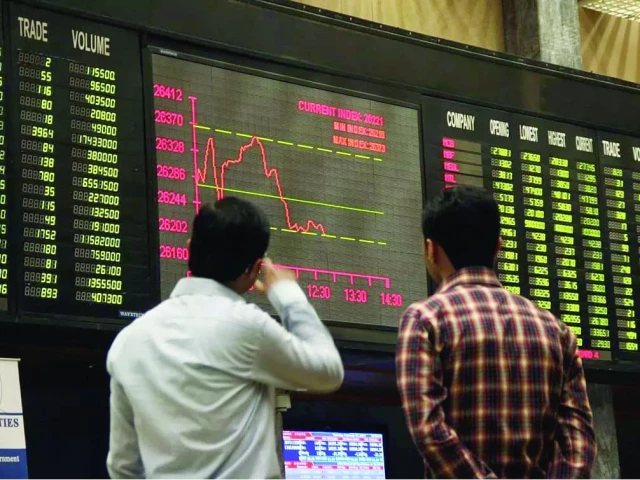Business
ADB–Pakistan funding: $410m package approved for Reko Diq; activists raise human rights and environmental concerns – Times of India

The Asian Development Bank (ADB) on Friday approved a $410 million package for Pakistan’s Reko Diq copper and gold mine, as the country’s rare earth deposit are attracting foreign interests.The financing includes $300 million in loans to Canadian firm Barrick and a $110 million credit guarantee for the provincial government. The open-pit project in Pakistan’s Balochistan province is set to tap into one of the world’s largest undeveloped copper and gold reserves, with production scheduled for 2028. Once operational, it is expected to become the world’s fifth-largest source of copper, a key metal for wiring, motors, and renewable energy technologies.“Reko Diq will help the critical minerals supply chain, while advancing the clean energy transition and driving digital innovation,” ADB President Masato Kanda said. He further called the package “a game-changer for Pakistan… underpinning the nation’s transition toward a more resilient and diversified economy.”The project, however, is unfolding in Balochistan, a province scarred by decades of separatist insurgency. Armed groups have often targeted foreign-backed projects, particularly those operated by Chinese firms. Local resentment over resource extraction remains strong, as 70 percent of the province’s 15 million people live below the poverty line despite its vast hydrocarbons and mineral wealth.Civil society groups have also voiced alarm. In an open letter published on Tuesday, three dozen organisations, including MiningWatch Canada and the Asia-Pacific Network of Environmental Defenders, urged the ADB and International Finance Corporation to delay involvement. “This project risks exacerbating the insecurity of human rights defenders and contributing to environmental and social destruction,” the groups said.Barrick has not yet commented.Pakistan’s military leadership has recently highlighted the country’s potential as a minerals and rare earths hub, while pushing trade negotiations with US President Donald Trump’s administration. Pakistan’s military chief has recently highlighted the country’s potential as a hub for minerals and rare earths while engaging in trade talks with US President Donald Trump’s administration. For decades, Pakistani officials have pitched the Reko Diq project as central to Pakistan’s economic revival strategy. Yet progress has been sluggish, hampered by legal disputes, bureaucratic hurdles, and friction between federal and provincial authorities.
Business
Pakistan Stock Exchange staged a strong comeback – SUCH TV

Pakistan Stock Exchange (PSX) on Friday staged a strong comeback, breaking the long bearish momentum as snowballing forex reserves have lifted investor sentiment.
During intraday trading, the PSX’s benchmark KSE-100 index gained a whopping 3,146.23 points to climb to 184,602.56 points, marking a positive change of 1.70%.
Out of 562 active companies, share prices of 375 advanced and of 67 declined while rates of 120 companies remained unchanged.
Economic analysts said the uptick offered some breathing space for the economy, even as the country continued to keep a close watch on external inflows and outflows.
Pakistan’s foreign exchange reserves inched up by $16 million over the past week, according to figures released by the State Bank of Pakistan.
The central bank said its official reserves rose from $16.0557 billion to $16.0718 billion, showing a modest gain during the week.
Overall, the country’s total reserves climbed to $21.2484 billion.
The State Bank also noted that commercial banks’ holdings went up by $5.6 million, reaching $5.1927 billion.
The central bank projects the FY26 current account deficit at 0–1% of GDP and sees reserves at $17.8 billion by June 2026 with planned official inflows.
A day earlier, the stock exchange dropped by over 1,100 points due to massive selling pressure.
The PSX had extended losses after recording an increase for a brief period as investors seemed cautious amid rising geopolitical tensions involving Iran.
During intraday trading, the KSE-100 index touched 183,717.53 due to strong buying in the early sessions before it turned bearish by losing 69.29 points to close at 182,500.52 points.
International officials have warned that US military intervention in Iran now appears likely and could take place within the next 24 hours amid sharply escalating tensions in the Middle East.
American, European and Israeli sources said preparations for possible action were under way as Washington began evacuating personnel from its major air base in Qatar.
Business
Those with MGNREGA cards to get work during transition to G RAM G Act – The Times of India

NEW DELHI: People with job cards assigned under Mahatma Gandhi National Rural Guarantee Scheme will be able to get work without disruption when transition takes place to new rural employment framework under Viksit Bharat-Guarantee for Rozgar and Aajeevika Mission (Gramin) Act.Even though exact timeframe is not known yet, rural development ministry officials said the VB-G RAM G scheme will come into force in the coming financial year after the Centre frames and notifies the rules. After govt notifies the Act’s commencement date, states will get six months to make their schemes to enable implementation of the law.To ensure there is no disruption and job guarantee is upheld during transition from MGNREGA, it has been proposed to enable workers to use the same job cards issued under MGNREGA with Aadhaar-based eKYC.The officials said that as of now, around 75% of job cards have been verified with eKYC under the ongoing scheme. Moreover, ongoing projects under MGNREGA, if incomplete when the transition happens to the new scheme, would stay on course.Meanwhile, work is on to frame rules, lay out regulations on normative allocations, fund flow plan, IT framework, a national-level steering panel and social audits.Under the new law, focus will be on transparency to weed out leakages and duplicacy of work,the social audit system will be strengthened, and technology leveraged to create systems to establish work progress, timely wage payment and accountability through ‘e-measurement’ books, sources said. Demand for work will have to be entered on a digital platform. Officials made it clear the new law in no way interferes with demand-driven character of the scheme.
Business
Gurugram Attracts Rs 86,588 Crore In Real Estate Investments In 2025 As RERA Clears 131 Projects

Last Updated:
Alongside rising investments, Gurugram RERA strengthened regulatory oversight to safeguard homebuyer and investor interests

Gurgaon Real Estate (Representative Image)
Gurugram emerged as one of India’s top real estate investment destinations in 2025, with projects worth Rs 86,588 crore receiving regulatory approvals during the year, according to data from the Gurugram Real Estate Regulatory Authority (Gurugram RERA).
Market observers said the numbers reflect strong investor confidence in the NCR’s largest commercial and residential hub.
Gurugram RERA registered 131 projects in calendar year 2025, representing development potential of 35,455 units across housing and commercial segments.
A striking feature of the data was the dominance of large-ticket projects. Just 28 major developments accounted for investments worth Rs 59,360 crore, highlighting the growing influence of institutional capital and large developers in shaping Gurugram’s property market.
Residential assets continued to attract the bulk of investment interest. Of the total units approved, 31,455 were residential, underscoring sustained end-user demand and long-term confidence in the city’s housing fundamentals.
According to Authority data, the residential mix included 17,405 group housing units, 5,720 mixed land use units, 4,040 residential floor units, 2,122 affordable group housing units, 1,954 units under the Deen Dayal housing scheme, and 214 residential plotted colony units.
Market observers said this diversified supply pipeline indicates capital deployment across both premium and mass segments, helping reduce concentration risk and deepen market resilience.
On the commercial side, Gurugram RERA approved about 4,000 commercial units, of which 168 were dedicated to IT parks, reinforcing Gurugram’s position as a preferred hub for technology firms and Global Capability Centres.
Analysts noted that the combination of office-led employment growth and residential expansion continues to make Gurugram attractive for long-term capital deployment.
Industry experts said the scale of investments approved in 2025 highlights Gurugram’s ability to attract capital despite global uncertainty, supported by infrastructure growth, a strong corporate base and an improving regulatory environment.
“With a large pipeline of approved projects and sustained interest from developers and institutional investors, Gurugram is expected to remain a key real estate investment destination in the coming years,” a Gurugram-based real estate expert said.
Tighter regulatory checks
Alongside rising investments, Gurugram RERA strengthened regulatory oversight to enhance transparency and safeguard homebuyer and investor interests.
“These steps included stricter scrutiny of developer submissions, mandatory site inspections by domain experts, and public consultation through mandatory notices before project registration,” an Authority official said.
January 16, 2026, 07:44 IST
Read More
-

 Politics1 week ago
Politics1 week agoUK says provided assistance in US-led tanker seizure
-

 Entertainment1 week ago
Entertainment1 week agoDoes new US food pyramid put too much steak on your plate?
-

 Entertainment1 week ago
Entertainment1 week agoWhy did Nick Reiner’s lawyer Alan Jackson withdraw from case?
-

 Sports5 days ago
Sports5 days agoClock is ticking for Frank at Spurs, with dwindling evidence he deserves extra time
-

 Business1 week ago
Business1 week agoTrump moves to ban home purchases by institutional investors
-

 Sports1 week ago
Sports1 week agoPGA of America CEO steps down after one year to take care of mother and mother-in-law
-

 Tech3 days ago
Tech3 days agoNew Proposed Legislation Would Let Self-Driving Cars Operate in New York State
-

 Business1 week ago
Business1 week agoBulls dominate as KSE-100 breaks past 186,000 mark – SUCH TV










